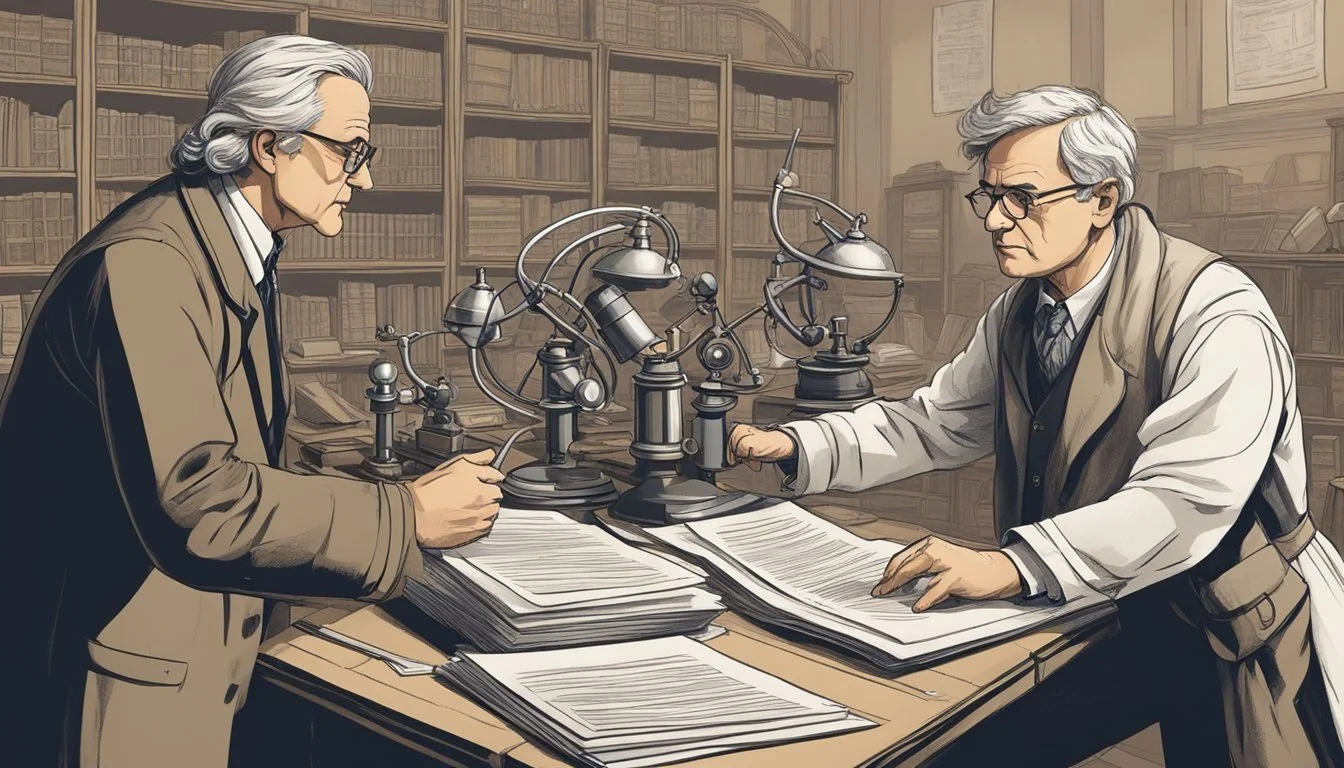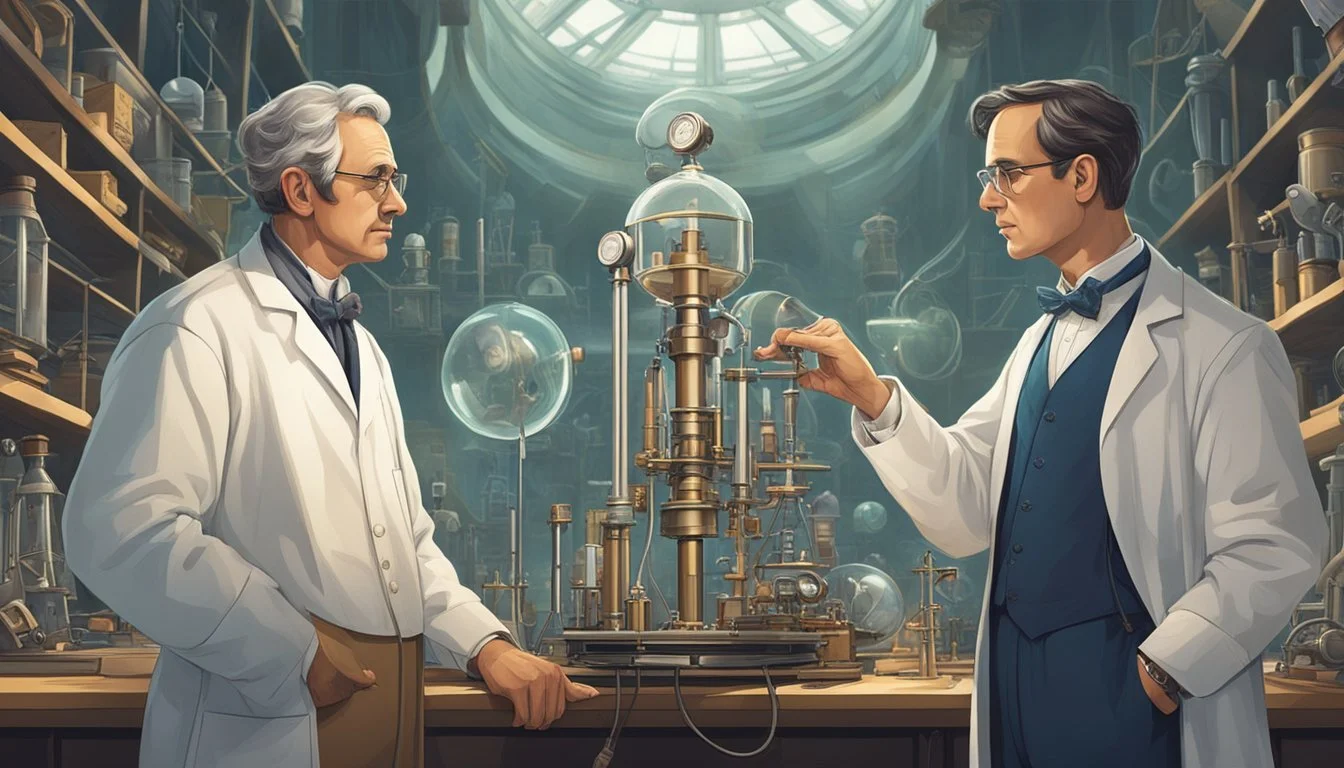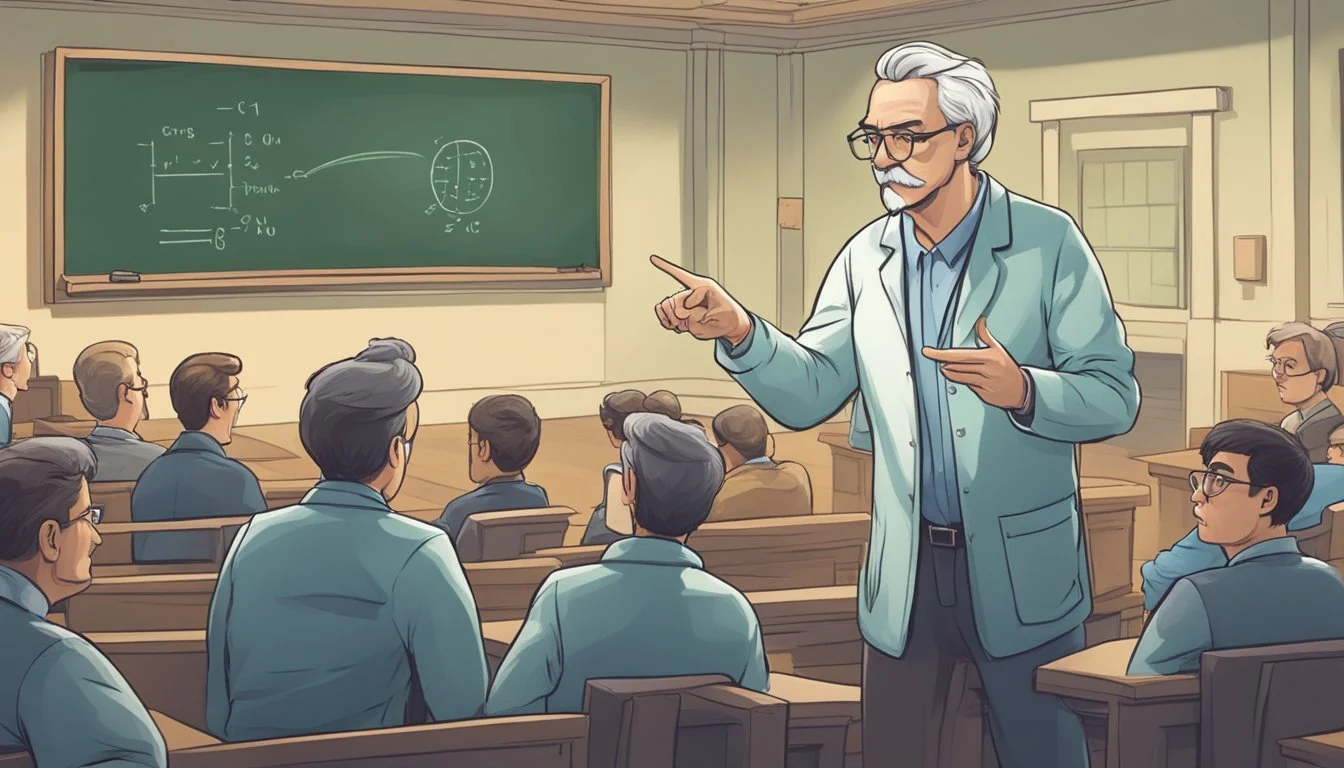6 Documentaries About Scientific Feuds That Changed History
Clashes of Genius That Reshaped Our Understanding
Scientific feuds have played a pivotal role in shaping our understanding of the world. These intellectual battles, often fueled by conflicting theories and personal rivalries, have pushed the boundaries of knowledge and driven scientific progress. Documentaries exploring these historic clashes offer viewers a window into the passion, perseverance, and sometimes petty disputes that have propelled scientific advancement.
From paleontology to astronomy, these films showcase the human drama behind groundbreaking discoveries. They reveal how competing ideas and fierce debates have ultimately led to new insights and paradigm shifts in various scientific fields. By examining these pivotal moments, audiences gain a deeper appreciation for the complex and often contentious process of scientific inquiry.
1) The Day After Trinity - The Oppenheimer Project
The Day After Trinity explores the life and work of J. Robert Oppenheimer, the physicist who led the Manhattan Project. This 1981 documentary examines the development of the first atomic bomb and its aftermath.
Director Jon Else interviews key scientists involved in the project. The film provides insight into Oppenheimer's brilliance and the moral dilemmas he faced.
Archival footage and photographs bring the era to life. Viewers witness the tension and urgency surrounding the bomb's creation during World War II.
The documentary also delves into Oppenheimer's post-war struggles. It covers his opposition to the hydrogen bomb and the security hearing that stripped him of his clearance.
The Day After Trinity offers a nuanced portrait of a complex historical figure. It raises important questions about scientific responsibility and the consequences of technological advancement.
The Day After Trinity - Wikipedia
2) Einstein's Big Idea - E=mc² Controversy
The documentary "Einstein's Big Idea" explores the groundbreaking equation E=mc² and its impact on scientific history. It delves into the contributions of various scientists that led to Einstein's revolutionary theory of special relativity.
The film dramatizes the work of key figures like Michael Faraday, Antoine Lavoisier, and Lise Meitner. These scientists made crucial discoveries in electromagnetism, mass conservation, and nuclear fission, respectively.
Einstein's equation challenged traditional views of mass and energy as separate entities. It proposed that they are interchangeable, with profound implications for physics and our understanding of the universe.
The documentary highlights the collaborative nature of scientific progress. It shows how Einstein built upon the work of his predecessors to develop his transformative ideas.
"Einstein's Big Idea" also touches on the equation's role in the development of nuclear energy. This aspect sparked controversy due to its potential for both destructive and beneficial applications.
https://www.imdb.com/title/tt0493174/
3) Galileo's Battle for the Heavens - Church vs. Science
This NOVA documentary explores the conflict between Galileo Galilei and the Roman Catholic Church in the 17th century. It depicts Galileo's struggle to convince church authorities of his astronomical discoveries.
The film highlights Galileo's observations that supported the Copernican model of a sun-centered solar system. These findings contradicted the Church's Earth-centered view of the universe.
Galileo faced intense opposition from religious leaders who saw his ideas as a threat to biblical teachings. The documentary examines the political and theological climate of the time that led to Galileo's trial by the Inquisition.
The program uses historical reenactments and expert interviews to bring Galileo's story to life. It shows how the scientist's unwavering dedication to truth clashed with the Church's doctrines.
Galileo's battle represents a pivotal moment in the relationship between science and religion. The documentary illustrates how this conflict shaped the course of scientific inquiry for centuries to come.
NOVA - Official Website | Galileo's Battle for the Heavens
4) The Race for Absolute Zero - Temperature Rivalries
The quest to reach absolute zero sparked intense competition among scientists in the late 19th and early 20th centuries. This documentary explores the fierce rivalries between laboratories in Britain, Holland, France, and Poland as they pursued the ultimate extreme of cold.
Pioneering physicists like James Dewar and Heike Kamerlingh Onnes raced to liquefy gases at progressively lower temperatures. Their efforts pushed the boundaries of physics and engineering, leading to groundbreaking discoveries.
The film chronicles key milestones in the race, including the liquefaction of oxygen, nitrogen, and eventually helium. It highlights the ingenuity and determination required to overcome immense technical challenges.
Viewers gain insight into the competitive nature of scientific research and how it drives progress. The documentary showcases the personalities and motivations of the scientists involved, bringing their stories to life.
Through interviews with experts and historical reenactments, the film provides a compelling look at this pivotal period in the history of physics. It demonstrates how the pursuit of absolute zero led to unexpected discoveries and technological advancements.
5) Tesla: Master of Lightning - Edison and Tesla
"Tesla: Master of Lightning" explores the rivalry between Nikola Tesla and Thomas Edison, two brilliant inventors who shaped the course of electrical technology. The documentary highlights their conflicting visions for power distribution.
Tesla championed alternating current (AC), while Edison staunchly advocated for direct current (DC). This fundamental disagreement led to a bitter feud known as the "War of Currents."
The film showcases Tesla's groundbreaking inventions and theories, many of which were ahead of their time. It also reveals how Edison's business acumen often overshadowed Tesla's scientific achievements.
Through rare photographs and Tesla's own writings, the documentary paints a picture of a visionary genius whose contributions were sometimes overlooked or attributed to others. It sheds light on the complex relationship between scientific innovation and commercial success.
"Tesla: Master of Lightning" offers viewers a compelling look at how personal rivalries can drive technological progress and shape history.
6) Hawking and Einstein - A Brief History of Time Debate
The 1991 documentary "A Brief History of Time" explores the groundbreaking work of Stephen Hawking. Directed by Errol Morris, the film delves into Hawking's theories that challenged and expanded upon Einstein's ideas about the universe.
Hawking's book of the same name, published in 1988, sparked debates in the scientific community. The documentary showcases how Hawking's work on black holes and the nature of time pushed the boundaries of physics established by Einstein.
The film interweaves Hawking's personal story with his scientific pursuits. It highlights how Hawking, despite his physical limitations due to ALS, became one of the most influential minds in modern physics.
Through interviews with Hawking, his family, and colleagues, the documentary illuminates the ongoing dialogue between Hawking's theories and Einstein's legacy. It demonstrates how scientific progress often involves building upon and challenging existing ideas.
"A Brief History of Time" serves as a testament to the evolving nature of scientific understanding and the power of human intellect to unlock cosmic mysteries.
A Brief History of Time (1991) - IMDb
Impact of Scientific Feuds on Innovation
Scientific feuds have played a crucial role in driving innovation and advancing knowledge. These intellectual battles often push researchers to new heights of discovery and creativity.
The Role of Competition in Advancing Science
Competition between scientists can accelerate progress in various fields. Rival researchers strive to outdo each other, leading to faster breakthroughs and more rigorous scientific methods. This competitive spirit often results in increased funding and resources for research projects.
Feuds can also attract public attention to scientific topics, raising awareness and interest in cutting-edge discoveries. The media coverage of high-profile disputes can inspire young minds to pursue careers in science and technology.
However, intense rivalries may sometimes hinder collaboration and the free exchange of ideas. Scientists engaged in feuds might withhold important data or refuse to share resources, potentially slowing overall progress in their field.
Case Studies of Feuds Leading to Breakthroughs
The feud between Nikola Tesla and Thomas Edison over alternating current (AC) versus direct current (DC) electricity led to rapid advancements in power distribution. Their rivalry spurred innovations that shaped modern electrical systems.
The race to discover the structure of DNA between Rosalind Franklin, James Watson, and Francis Crick resulted in one of the most significant breakthroughs in molecular biology. This competition accelerated our understanding of genetic information.
The ongoing debate between proponents of different artificial intelligence approaches has driven remarkable progress in machine learning and neural networks. This intellectual conflict has led to diverse AI applications across various industries.
Historical Context of Scientific Rivalries
Scientific rivalries have shaped the course of discovery and innovation throughout history. These conflicts often arose from competing theories, methodologies, or claims to priority in groundbreaking research.
Origins and Evolution of Notable Conflicts
The heliocentrism versus geocentrism debate marked one of the earliest major scientific feuds. Copernicus challenged the long-held geocentric model, sparking intense controversy.
This conflict set the stage for future rivalries in astronomy and physics. Newton and Hooke's dispute over optics and gravitation theories exemplified the competitive nature of 17th-century scientific discourse.
In the 19th century, Darwin and Wallace's simultaneous development of evolutionary theory led to tensions over recognition and credit. Their rivalry highlighted the importance of publication timing in establishing scientific priority.
The Influence of Societal Factors on Feuds
Religious and political climates significantly impacted scientific rivalries. The Catholic Church's opposition to heliocentrism intensified the conflict between traditional and new scientific paradigms.
Nationalism played a role in fueling competition between scientists from different countries. The race for atomic research during World War II illustrated how geopolitical tensions could escalate scientific rivalries.
Funding and institutional support often became focal points of contention. The Edison-Tesla rivalry over electrical systems was partly driven by financial interests and corporate backing.
Media coverage and public opinion increasingly shaped scientific debates in the 20th century. The Salk-Sabin polio vaccine rivalry demonstrated how public health concerns could amplify scientific disagreements.






